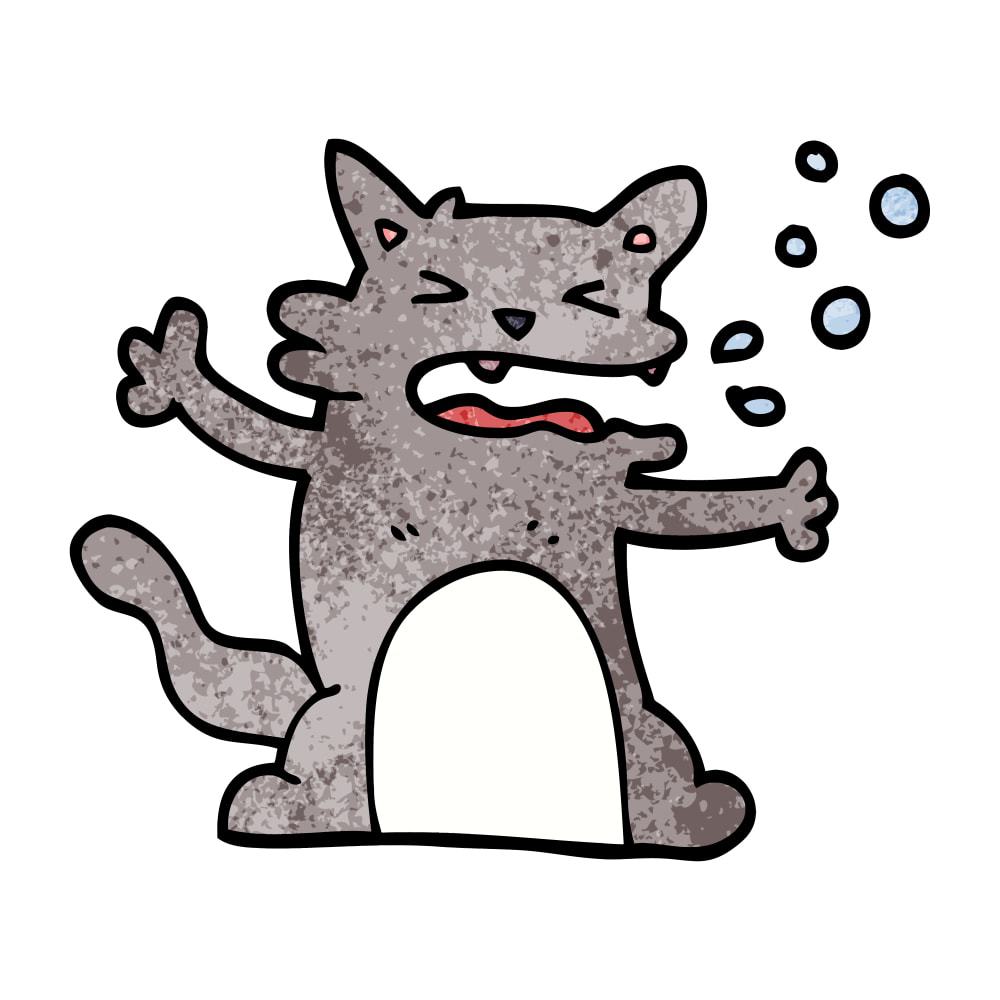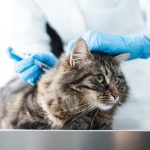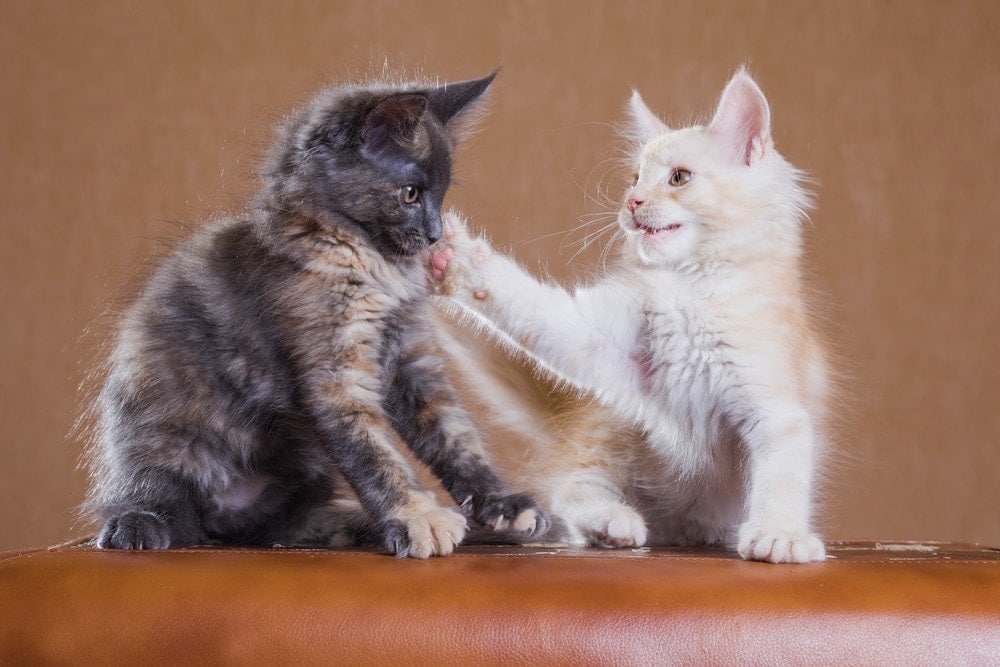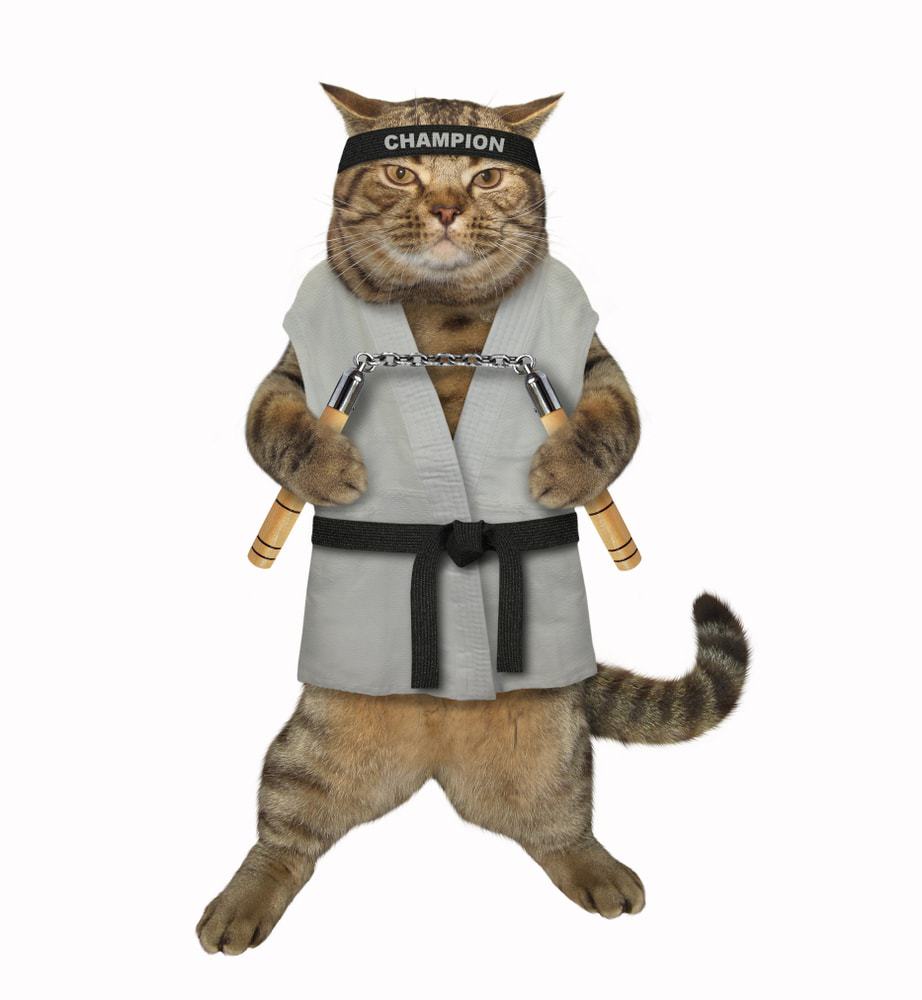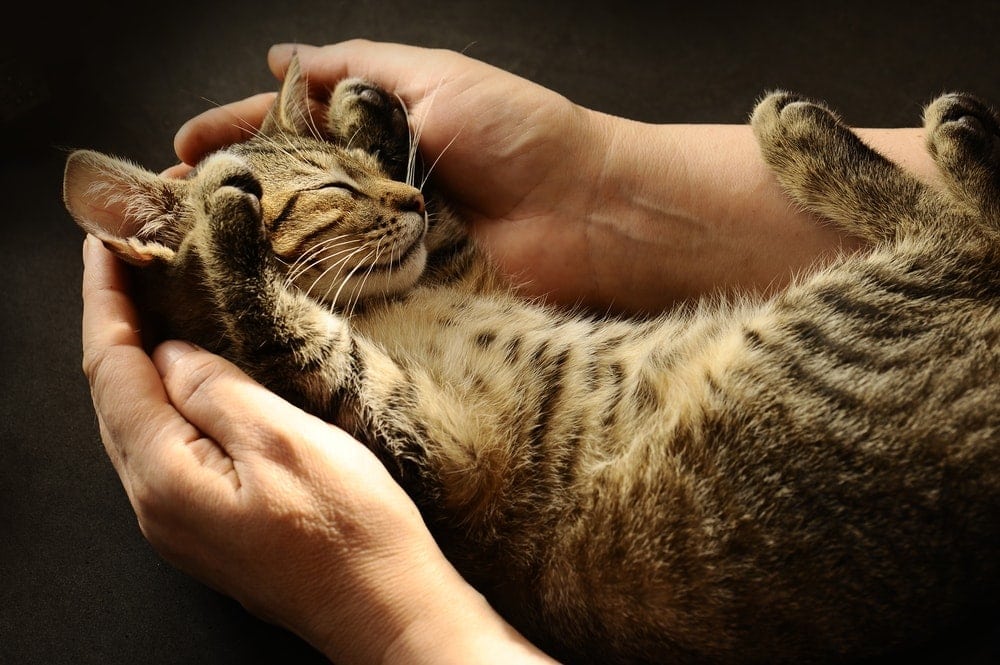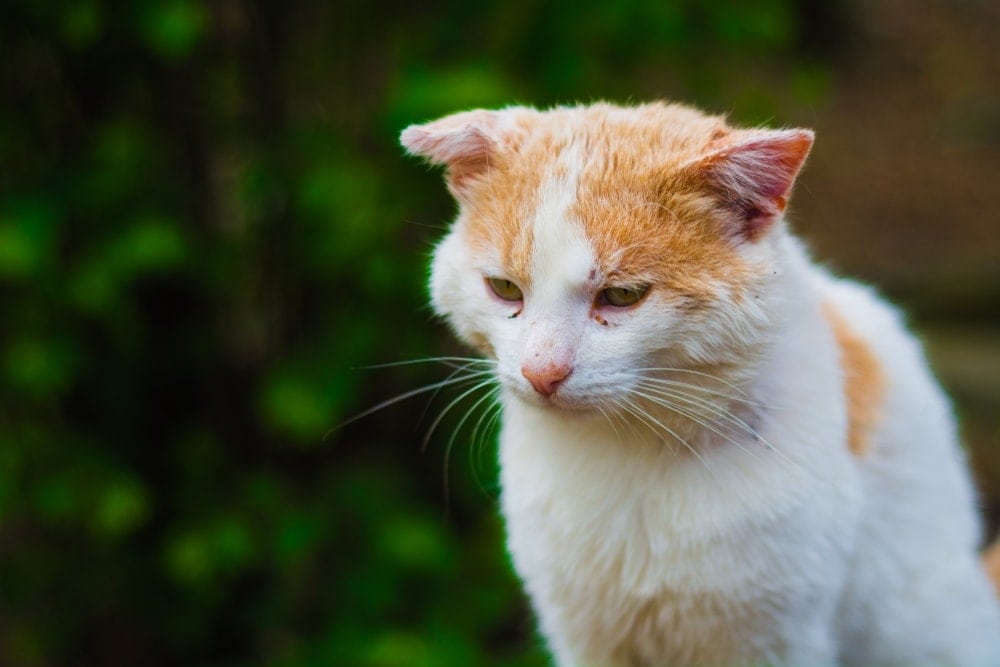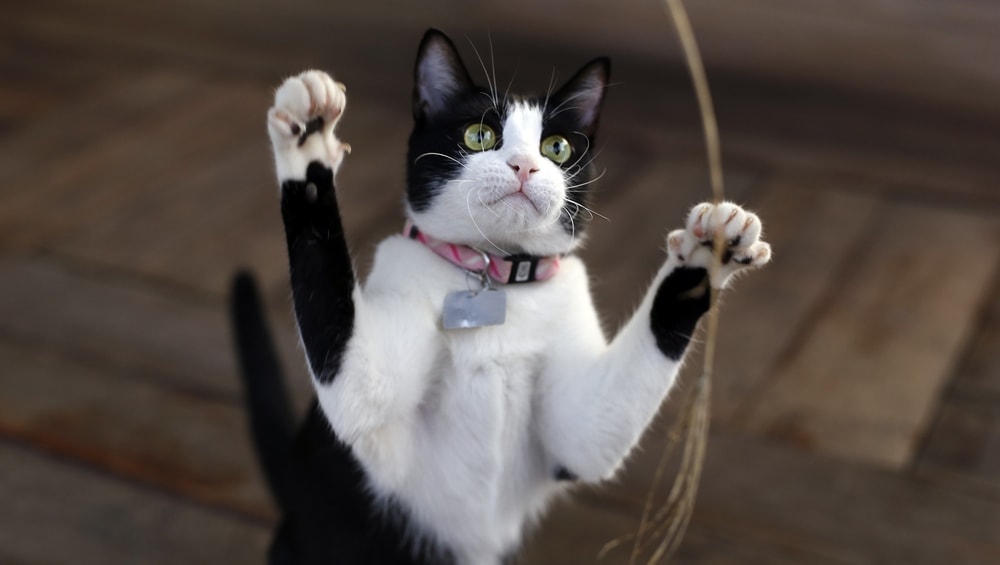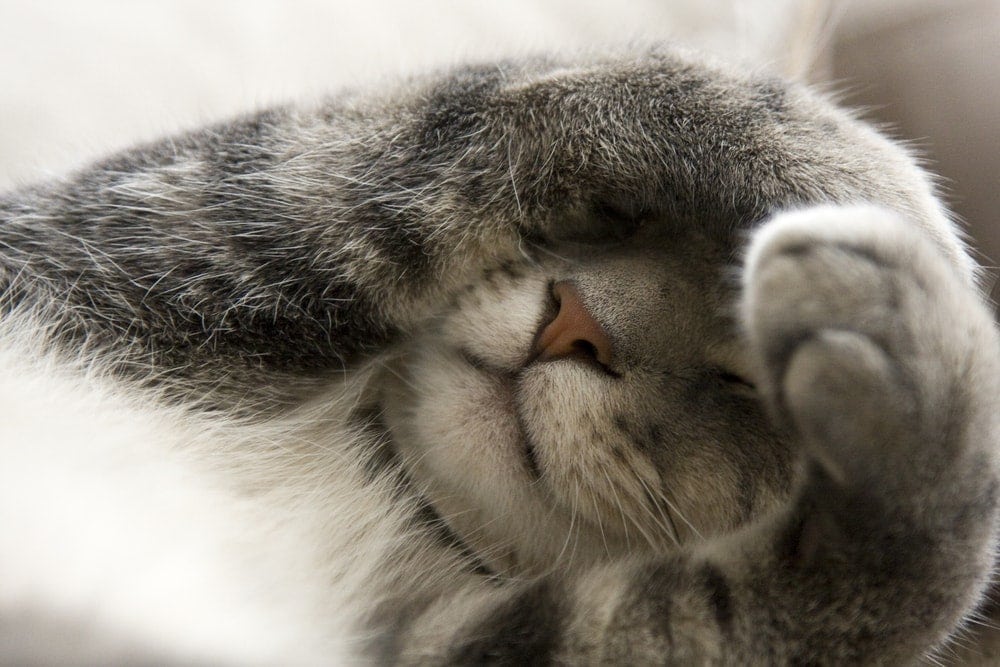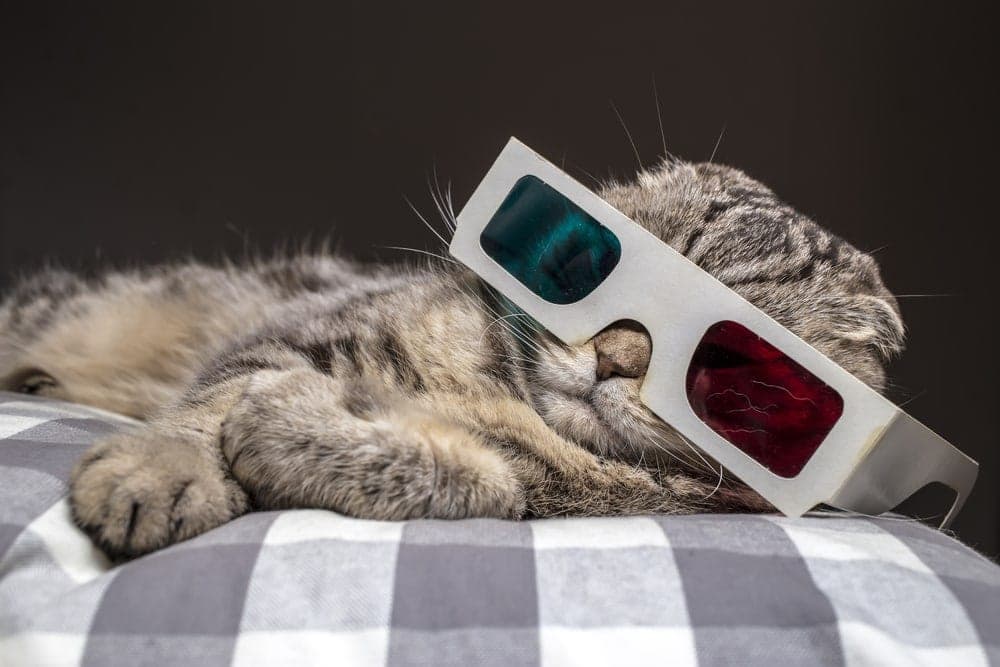Cat hiccups are fairly common, but there are probably a lot of things about them you don’t know.
We will take a close look at this issue that can be useful for you as a cat owner.
Signs of Cat Hiccups
Cats generally don’t make the same noise as people do when they hiccup. It can present as a high pitched squeaking sound when they breathe through their nose.
You should also notice movement of their abdomen when they hiccup. It is a quick rising and falling motion. It is not typically visible, but you might notice it if you have your hand on them at the time.
If your cat seems to have problems breathing normally when they hiccup, you should take them to see a veterinarian right away.
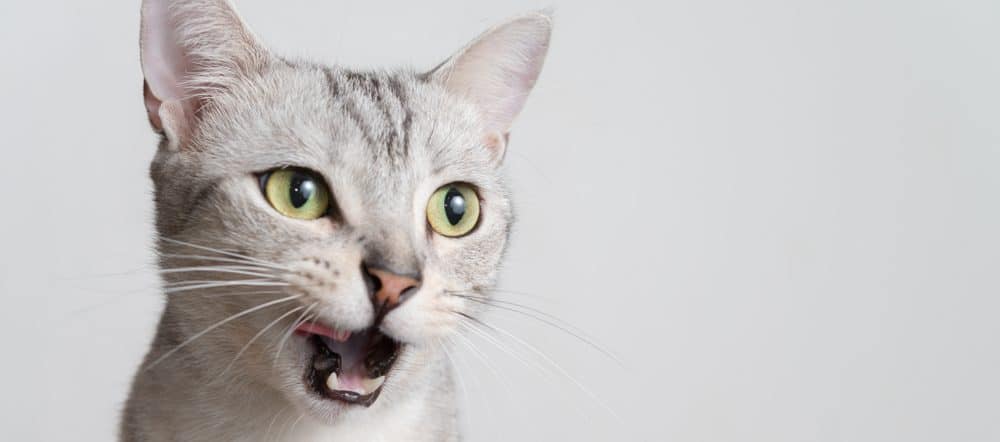
What Causes Cat Hiccups?
There is a multitude of things that can cause cats to hiccup. While it is usually pretty harmless, there are some more serious potential explanations to be aware of.
- Overeating: One of the more common reasons that cats hiccup is because they are eating too much or too fast.
- Hairballs: Many cats develop problems with hairballs. When fur builds up in their throat, they can cough it up. This can sometimes lead to hiccups.
- Disease: In rare cases, cat hiccups are a sign of disease or illness. Your cat could have a tumor or even a problem with their nervous system. There is also a chance that there could be something wrong with your cat’s stomach.
- Allergies: Sometimes a cat hiccups when it is exposed to something it is allergic to. This can also occur if your cat has asthma.
- Stress: It is possible that your cat is hiccupping because it is under a lot of stress or is afraid. If you have just moved to a new house, it might be doing this because it is still adjusting to a strange environment. It only takes about a week or two for most cats to make this adjustment.
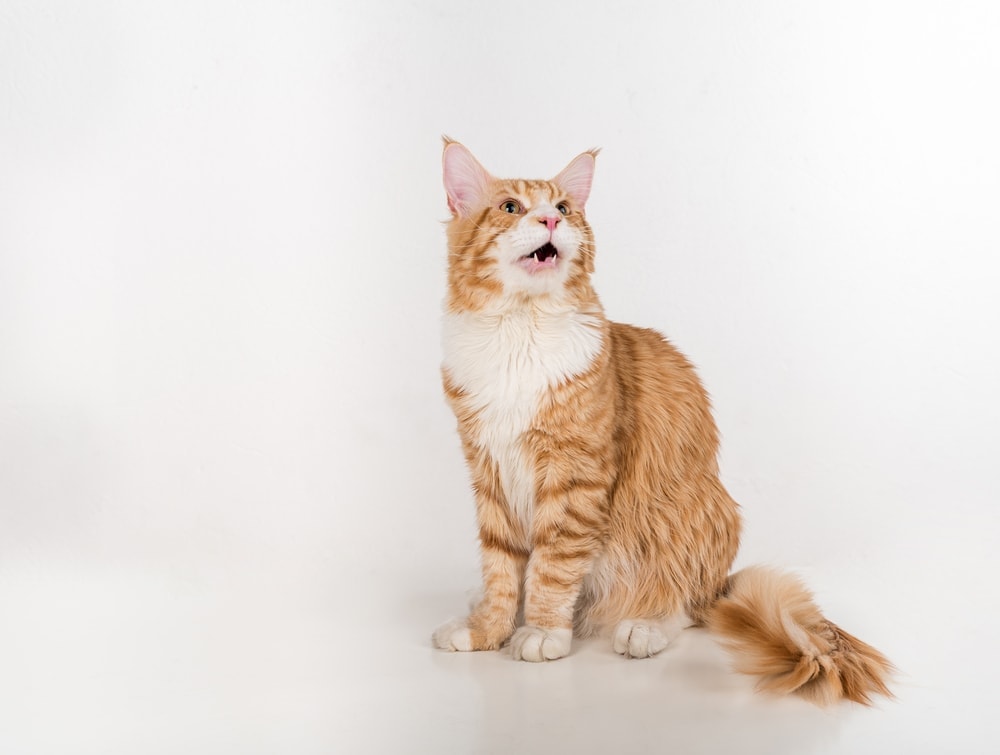
Treating Cat Hiccups
Cat hiccups do not usually require any treatment, but there are some things you can do to lessen them.
1. Start Giving Your Cat Smaller Food Portions
If your cat eats too quickly, you might want to try breaking down your cat’s meals into smaller portions throughout each day. Eating too much within a short period of time is one of the most common reasons for cat hiccups.
You could also try putting a favorite toy of theirs inside the food bowl. This might be effective with getting them to slow down when they eat.
2. Special Diet for Hairballs
If hairballs are a particular issue for your cat, you can put them on a special diet to help with this. You can get a recommendation from your veterinarian as to which food might be best for this problem. You can find good food for your cat here: Best cat foods.
There are also certain gels that you can buy to minimize problems with hairballs. These gels lubricate the digestive tract of your cat to reduce constipation. This will serve to improve your pet’s overall quality of life.
3. Get Your Cat Examined
If your cat is hiccupping because of a serious illness, you will need to see your veterinarian. They will be able to run a series of tests to make sure that there is nothing major wrong with them. Chronic hiccupping can be a sign of disease, so it is important that you get your cat looked at right away.
4. Keep Their Water Bowl Full
It is important that your cat always has enough water in its bowl. This can help prevent hiccups from becoming a problem in the first place.
You might even want to invest in a fountain that keeps replenishing the water so it doesn’t get too low. You’ll need to fill it back up eventually, but it lasts quite a while.
What NOT to do about Your Cat’s Hiccups
You should refrain from trying to use any home remedies for cat hiccups, as most of them don’t work at all. Scaring your cat isn’t going to stop its hiccups, but it could get you scratched up pretty bad.
It is also not a good idea to try to get your cat to holds its breath. First off, this is next to impossible. Secondly, you could actually hurt your kitty in the process.
Just stay away from all those remedies that are said to be effective for human hiccups.
When to See Your Veterinarian
If your cat’s hiccups are accompanied by labored breathing or heavy wheezing, you’ll probably want to pay a visit to the vet. Decreased appetite is also a reason for concern. If they aren’t eating as much as they normally do, there’s a good chance that something is wrong.
Cats can hiccup off and on for an entire day, but anything more than that is not normal. If their hiccupping exceeds one day, you should take them to the vet. Make sure that you closely monitor them so you know whether or not you need to do this.
Conclusion
- Lots of cats hiccup occasionally, and it is usually not a sign of a serious issue.
- If your cat’s hiccups continue for more than a day without stopping, you should see your veterinarian.
- Hairballs are a common cause of hiccups with cats, which may or may not be a sign of a serious health problem.
- If your cat is hiccupping and has a problem with hairballs, you might need to feed it a special diet.
- If your cat hiccups because it eats too quickly, try breaking down their meals into smaller portions.
- Some cats hiccup from stress due to being in a new environment or some other reason.
- You should avoid any “home remedies” for hiccups with your cat, as they most likely won’t do anything.
- Make sure that your cat’s water bowl is full at all times to help prevent them from getting the hiccups.
